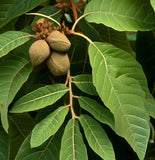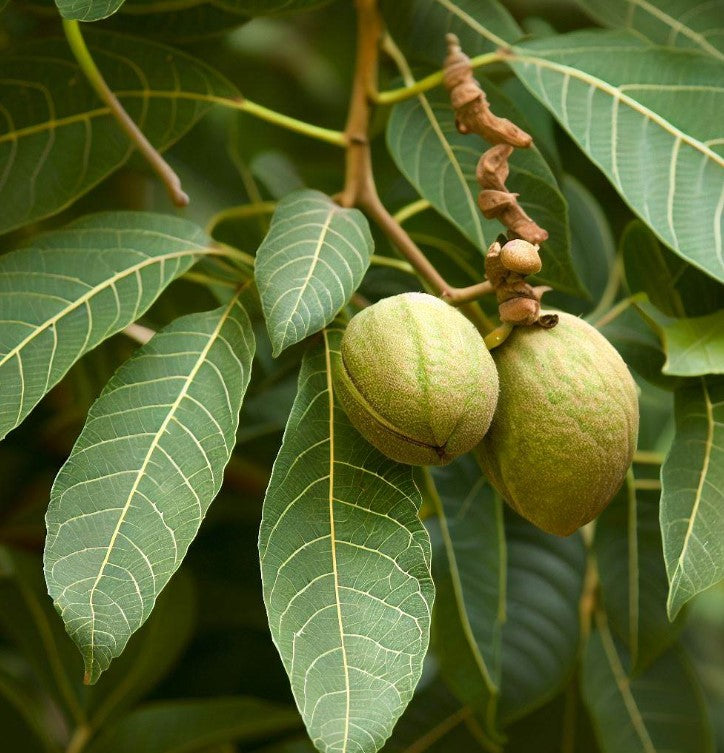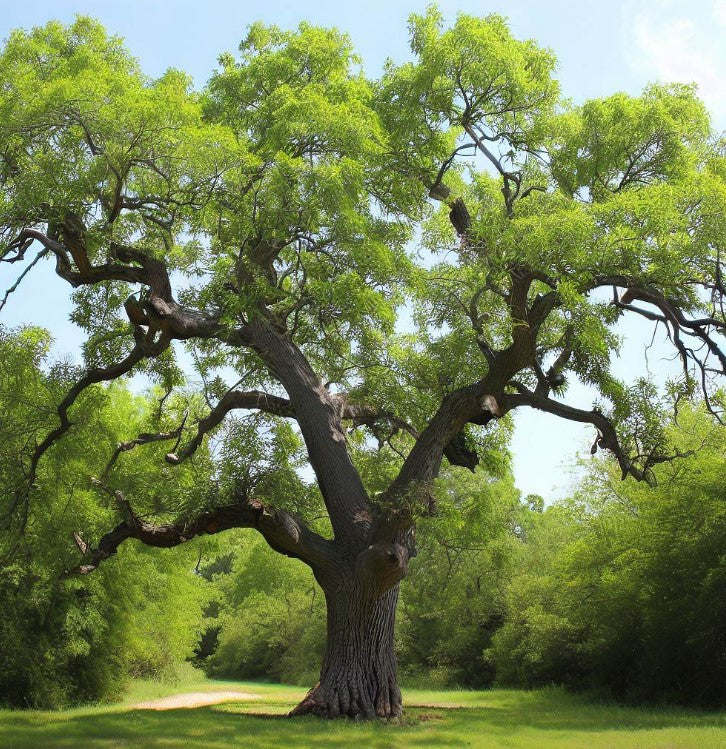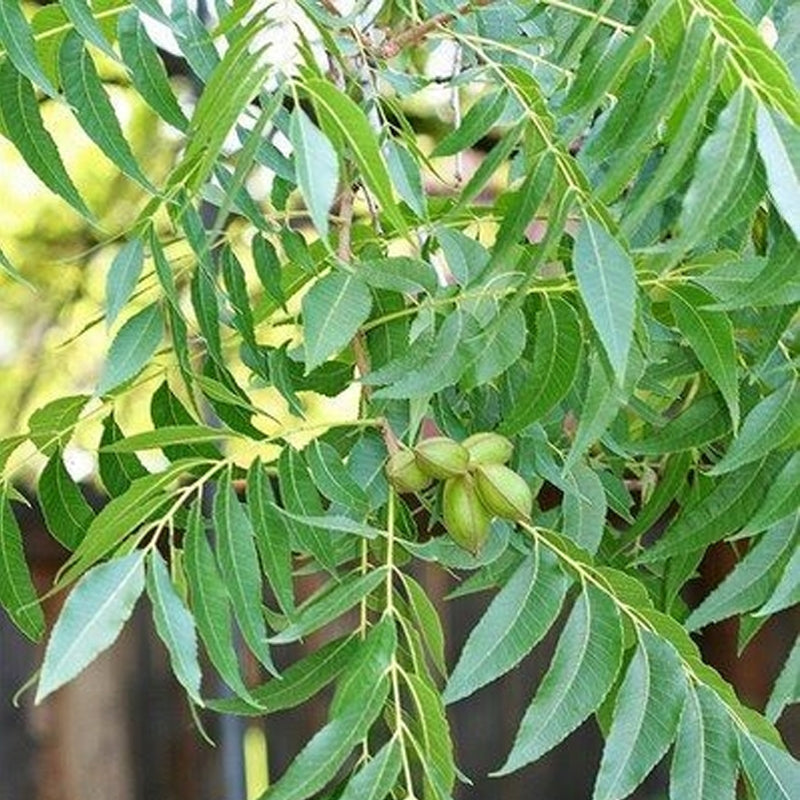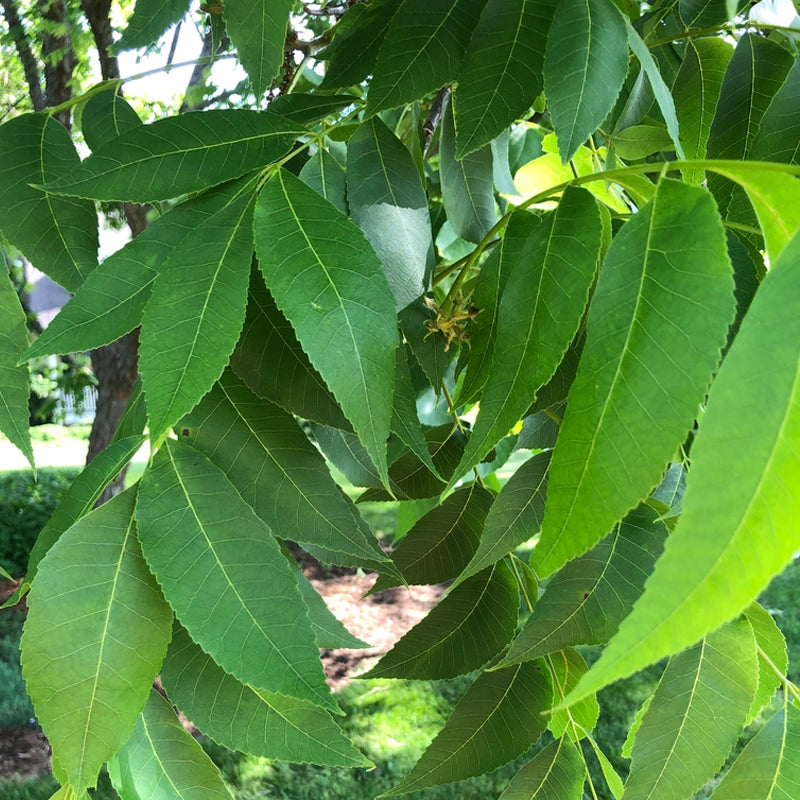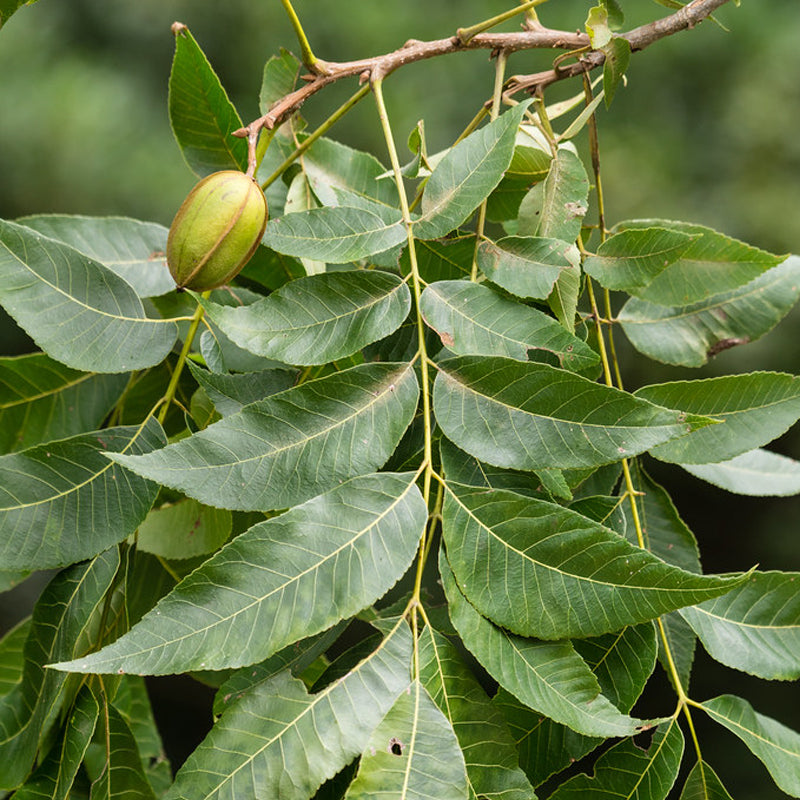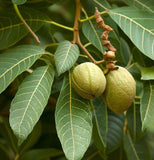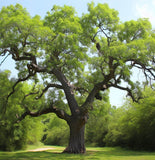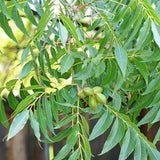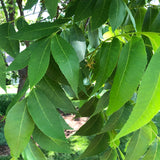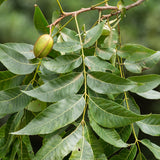Carya illinoinensis (Pecan, Wild Pecan)
Carya illinoinensis (Pecan, Wild Pecan) is a species of hickory tree native to the central and southern regions of the United States.
Appearance: Pecan trees are large deciduous trees that can reach heights of 70 to 100 feet (21 to 30 meters) with a spread of 40 to 75 feet (12 to 23 meters). They have a broad, rounded crown and a straight trunk. The leaves are pinnately compound, consisting of 9 to 17 lance-shaped leaflets that are serrated along the edges. The foliage is bright green during the growing season and turns golden-yellow in the fall.
Habitat and Range: Pecan trees are native to the central and southern regions of the United States, including parts of Texas, Oklahoma, Louisiana, and Mississippi. They are commonly found along riverbanks and in bottomland areas with well-drained soils.
Bark: The bark of Pecan trees is smooth and gray when young, becoming rougher and developing scaly ridges as the tree ages.
Flowers and Fruits: Pecan trees are monoecious, meaning they have separate male and female flowers on the same tree. The flowers are small and inconspicuous, appearing in early spring before the leaves emerge. The female flowers give rise to elongated, oval-shaped nuts known as pecans. Pecan nuts have a hard shell and a sweet, buttery flavor. They are highly valued for culinary uses and are commonly used in pies, baked goods, and snacks.
Wood: Pecan wood is prized for its strength and durability. It is used in the construction of furniture, cabinetry, flooring, and tool handles. It is also used in smoking meats due to its rich flavor.
Cultivation: Pecan trees are commonly cultivated for their nuts. They require a long growing season, full sun exposure, and well-drained soil. They are sensitive to cold temperatures and are best suited to USDA hardiness zones 6 to 9. Pecan trees are typically propagated through grafting or budding techniques to ensure desirable nut-bearing traits.
Ecological Importance: Pecan trees provide food and habitat for various wildlife, including squirrels, birds, and deer. They are also important for their ecosystem services, such as soil stabilization and water retention along riverbanks.
Botanical Name : Carya illinoinensis
Common Name : Pecan, Wild Pecan
Height : 66- 130 ft
Spread : 40- 50 ft
Germination Info : Seed requires 90-120 days cold moist stratification
Hardiness zone : 6-8
Average seed per ounce : Approx. 7

